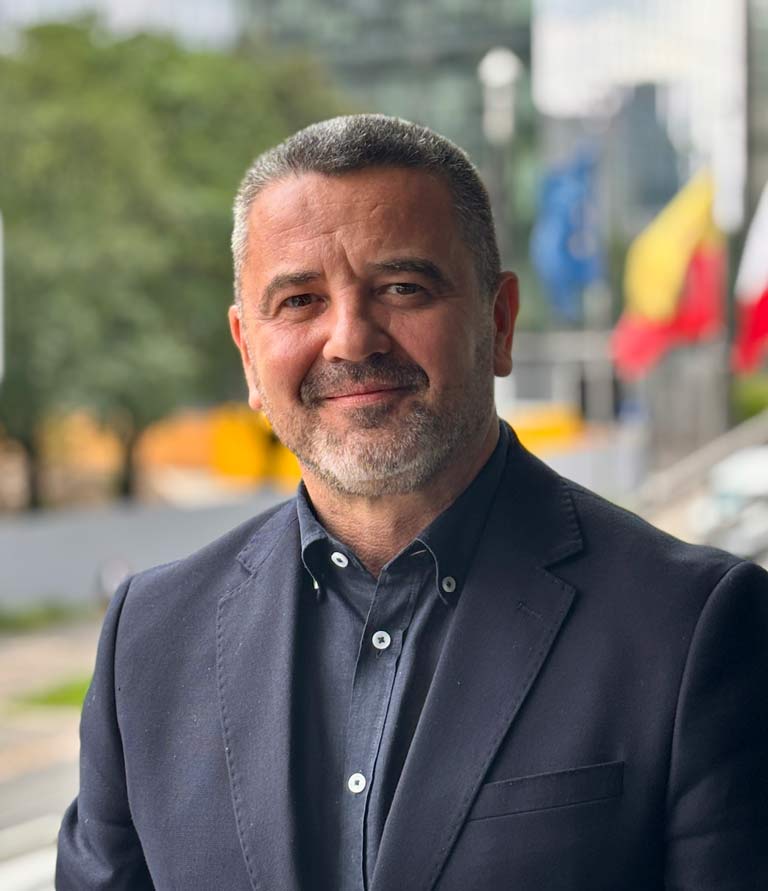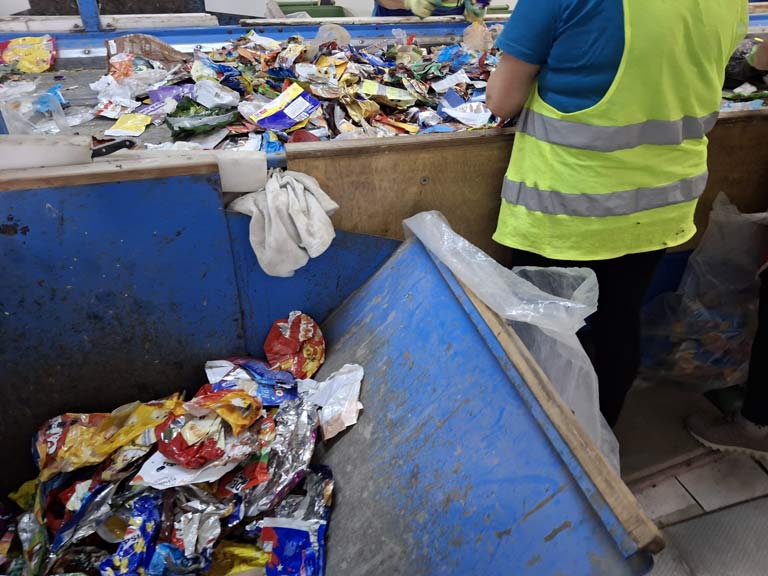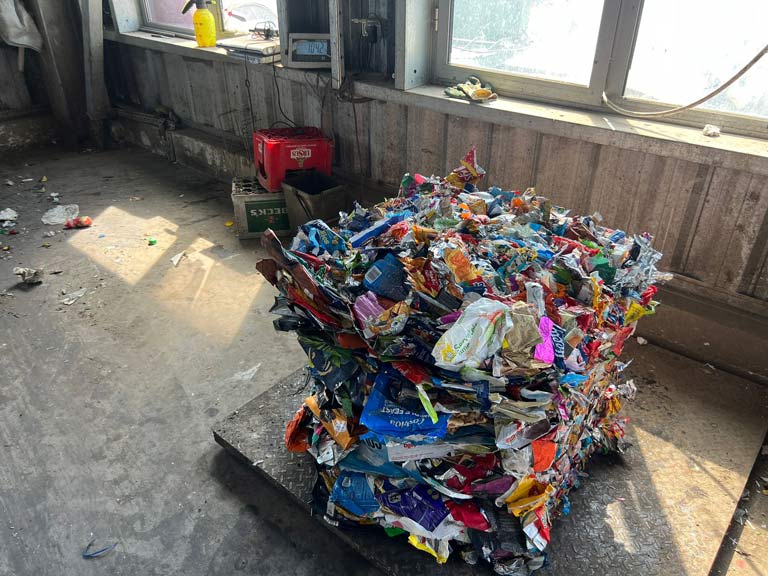‘RoFlex’ is a powerful new pilot showing just how flexible packaging can be sorted and recycled to meet the EU’s new packaging rules. Local actors are taking the lead, with CEFLEX supporting with technical insights, data and value chain coordination. The pilot shows what real implementation looks like and what must happen next to close the gap to 2030 EU legislative targets.
A desire to deliver PPWR rooted in local leadership
Efforts to boost flexible packaging recycling in Romania are up and running and RoFLEX is more than just a pilot. It’s a collaborative blueprint built by local partners and leading multi-national brand owners. Activated with EU expertise, and driven by the urgent need to deliver results on the ground.
At the heart of RoFlex are the Romanian operators making it real: five collectors, two sorting centres, and four recyclers. They are working alongside brand owners, EPR schemes and municipalities to build a flexible packaging sorting and recycling chain that performs. CEFLEX’s role is to help convene, connect and support with data, tools and shared learning, but it’s the national players who are leading the way.
“This is a team effort,” says Marius Tent, CEFLEX project lead for RoFlex. “Without the commitment of Romanian partners and brand owners, RoFlex wouldn’t exist. Our job is to help trigger action and provide support. It’s the local actors who are delivering.”

Marius Tent, CEFLEX project lead for RoFlex
Why RoFlex, why now?
 The backdrop is urgent. Under the Packaging and Packaging Waste Regulation (PPWR), Romania must recycle 55% of all plastic packaging by 2030. With current, reported, recycling rates around 37% and much of the country still relying on manual sorting, the gap is large, and growing. As PET bottles move into deposit return systems, the pressure to recover and recycle flexible packaging intensifies.
The backdrop is urgent. Under the Packaging and Packaging Waste Regulation (PPWR), Romania must recycle 55% of all plastic packaging by 2030. With current, reported, recycling rates around 37% and much of the country still relying on manual sorting, the gap is large, and growing. As PET bottles move into deposit return systems, the pressure to recover and recycle flexible packaging intensifies.
RoFlex is a direct response. Three of the country’s top separate collection and sorting plants in Bihor and Covasna counties are now separating flexible household packaging into three key streams for recycling trials with Romanian processors. The goal is simple: build an end-to-end recycling model that works and can scale – inspiring action across Romania and the region.
Evidence to scale, not just a trial
RoFlex is also generating critical evidence on costs, material flows and system performance. That data will inform national action plans, EPR strategies, and investment decisions. A national policy and technical conference in 2026 will bring results into the public domain and support expansion to more sorting centres.
“We’re showing what’s possible with the right alignment and effort,” says Tent. “But this alone won’t close the gap. Across the region, and indeed Europe, we need immediate national action plans, investment into infrastructure, and enforcement of obligations to deliver PPWR and make the system work.”
From pilot to policy
 The message from RoFlex is clear: targeted, technical collaboration works. But pilots alone are not enough. To meet PPWR targets, Romania needs to act at scale, fast. That means regulatory clarity, upgraded sorting infrastructure, and consistent enforcement.
The message from RoFlex is clear: targeted, technical collaboration works. But pilots alone are not enough. To meet PPWR targets, Romania needs to act at scale, fast. That means regulatory clarity, upgraded sorting infrastructure, and consistent enforcement.
RoFlex is a spark. What happens next depends on how quickly national and regional governments respond. The time for planning is over. The time for implementation is now.
Stay tuned to CEFLEX LinkedIn channel to follow developments in Romania, Bulgaria, Poland and beyond as part of a targeted implementation program for flexible packaging continues to gather momentum.
